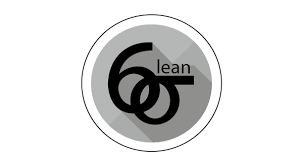February 17, 2025: What is Lean & Six Sigma? Could your company benefit from professionals with Lean & Six Sigma training and certification? Find the answers to these questions and more from the Rutgers School of Business Camden. Below is our interview with a Lean & Six Sigma Master Black Belt with a host of insights into this highly effective approach to business process improvement. Whatever level of knowledge you seek – from introductory (White Belt) to intermediate (Yellow Belt, Green Belt) mastery (Black Belt) – we have a program to meet your needs.
Q: Lean & Six Sigma vs. Project Management: What’s the difference? Do we need both?
A: Lean Six Sigma training teaches business professionals about specific methodology that systematically eliminates waste and inefficiencies, errors and variation in business processes. By understanding the core principles of this methodology, which relies on team collaboration to combine lean management with statistical quality control, professionals are better equipped to streamline and improve processes within their companies, , and continue to improve results over time. Project Management Professional training helps professionals acquire the skills they need to manage projects – which have a beginning and end – according to Project Management best practices. These skills, applied to Lean Six Sigma projects, ensure that continuous improvements are delivered on time and on budget. These two trainings are not explicitly dependent upon each other, but professionals with both will be an even greater asset to their company, and have a more attractive résumé.
Q: We’re not a manufacturing company – is Lean & Six Sigma a fit for us?
A: Lean & Six Sigma is a methodology implemented by companies throughout a wide variety of industries. Healthcare organizations, retail companies, financial services, manufacturing, logistics, (not to mention non-profits) and numerous others have benefitted from the Lean & Six Sigma approach. The program’s focus on eliminating waste, improving efficiency and reducing errors is not industry specific; with its widely-applicable tools and techniques, any organization can benefit from the higher efficiency and lower costs that its implementation affords.
Q: Should I go for a Green Belt or Black Belt?
A: Your choice of Green Belt of Black Belt training and certification will depend upon the extent to which you wish to master Lean & Six Sigma skills. Green Belt training is a stepping stone for professionals interested in Black Belt training; a student must first complete Green Belt training to enroll in Black Belt training. Green Belt training provides introductory instruction on business performance analysis and application, combining lean process philosophy and Six Sigma tools. Black Belt training also combines these tools and philosophy, but dives deeper into “Define-Measure-Analyze-Improve-Control” with interactive exercises that focus on a variety of statistical methods and waste elimination practices. Black Belt professionals will also be able to act as a mentor to Green Belts in their organization.
Q: Why choose the Rutgers program?
A: The Rutgers program offers interactive, engaging instruction and mentorship that ensures professionals receive the highest level of training. Rutgers’ tradition of excellence and partnership with Lockheed Martin, renowned for its effective business approaches, ensure that professionals acquire the skills and insight they need to be highly successful. Our flexible learning environments—many programs can be completed both online or in a traditional classroom setting—ensure that acquiring training and certification is convenient for our students, and often allow them to work at their own pace.
Q: Do we need to jump in with both feet, or can we start small and work our way in to it?
A: Lean & Six Sigma methodology does not have to be implemented all at once. Many companies and organizations prefer to adapt it in steps. With careful strategic planning, this can lead to quick, sustainable gains, which will build upon one another as more people and more business units are trained and begin using the methodology. Contact us for a sample Lean & Six Sigma Implementation Roadmap.
Q: Mention “statistics “and a lot of us at my organization head for the hills – doesn’t Lean & Six Sigma require a lot of statistics?
A: Statistics is used in the Lean & Six Sigma methodology, but should not be viewed as roadblock to participating in process improvement. Professionals that complete Lean & Six Sigma training and certification will acquire the statistical skills they need to effectively implement the methodology; in other words, necessary statistical skills can be taught. Lean & Six Sigma’s varying levels of training also require varying understandings of statistics; Green Belt training does not require the same expertise as Black Belt training (these trainings build upon each other). Note, too, that professionals that complete the Lean & Six Sigma training and certification will benefit from the guidance and expertise of a Rutgers Master Black Belt.
Have another question? Learn more about the Professional and Executive Education at Rutgers (PEER) Lean & Six Sigma programs by visiting us online or contacting us today.

